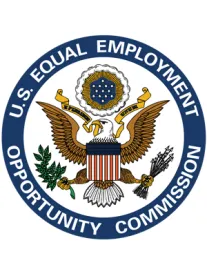The U.S. Supreme Court now has a greater incentive to resolve the issue of whether Title VII of the Civil Rights Act of 1964 prohibits employers from discriminating against employees on the basis of sexual orientation.
That motivation arrived on Monday, when the U.S. Court of Appeals for the Second Circuit handed down its 10-3 decision in Zarda v. Altitude Express, holding that "sex" discrimination includes sexual orientation because one cannot define a person's sexual orientation without identifying the person's gender. To emphasize this point, the court stated that sexual orientation discrimination is inevitably "motivated, at least in part, by sex and is thus a subset of sex discrimination."
In its Zarda decision, the Second Circuit has aligned itself with the U.S. Court of Appeals for the Seventh Circuit and the Equal Employment Opportunity Commission, both of which assert that Title VII bars workplace discrimination on the basis of sexual orientation. The Seventh Circuit’s April 2017 decision—in Hively v. Ivy Tech Community College— was hailed as a landmark victory for gay rights.
The Second and Seventh Circuits now agree that there is no difference between discrimination based on gender non-conformity—which the U.S. Supreme Court long ago held was actionable under Title VII—and sexual orientation. Being in a relationship with a member of the same sex, the courts found, is by definition failing to conform to the gender stereotype that women can only be in heterosexual relationships with men.
The two federal circuits are now at odds with the U.S. Court of Appeals for the Eleventh Circuit, which reached a different conclusion in March 2017 in Evans v. Georgia Regional Hospital. In that case, the Eleventh Circuit held that Title VII does not prohibit sexual orientation discrimination. Although recognizing that discrimination based on gender non-conformity is actionable, the Eleventh Circuit determined that there is no "binding precedent" by the U.S. Supreme Court that prohibits employers from discriminating against employees because of their sexual orientation.
Thus, under the Eleventh Circuit's holding, discrimination against a transgendered person because of gender non-conformity can constitute sex discrimination, but an individual’s gender non-conformity claim cannot be used to bootstrap a claim of discrimination "based on sexual orientation." Despite the initial circuit split, the U.S. Supreme Court denied certiorari in December 2017, declining to hear a case that could have resolved the issue. Now that the split has deepened, the Supreme Court may reconsider.
Although federal law is still in flux on this issue, employers should remember that many states and municipalities have amended their fair employment practices laws to expressly prohibit employment discrimination on the basis of sexual orientation and gender identity or expression.





 />i
/>i
